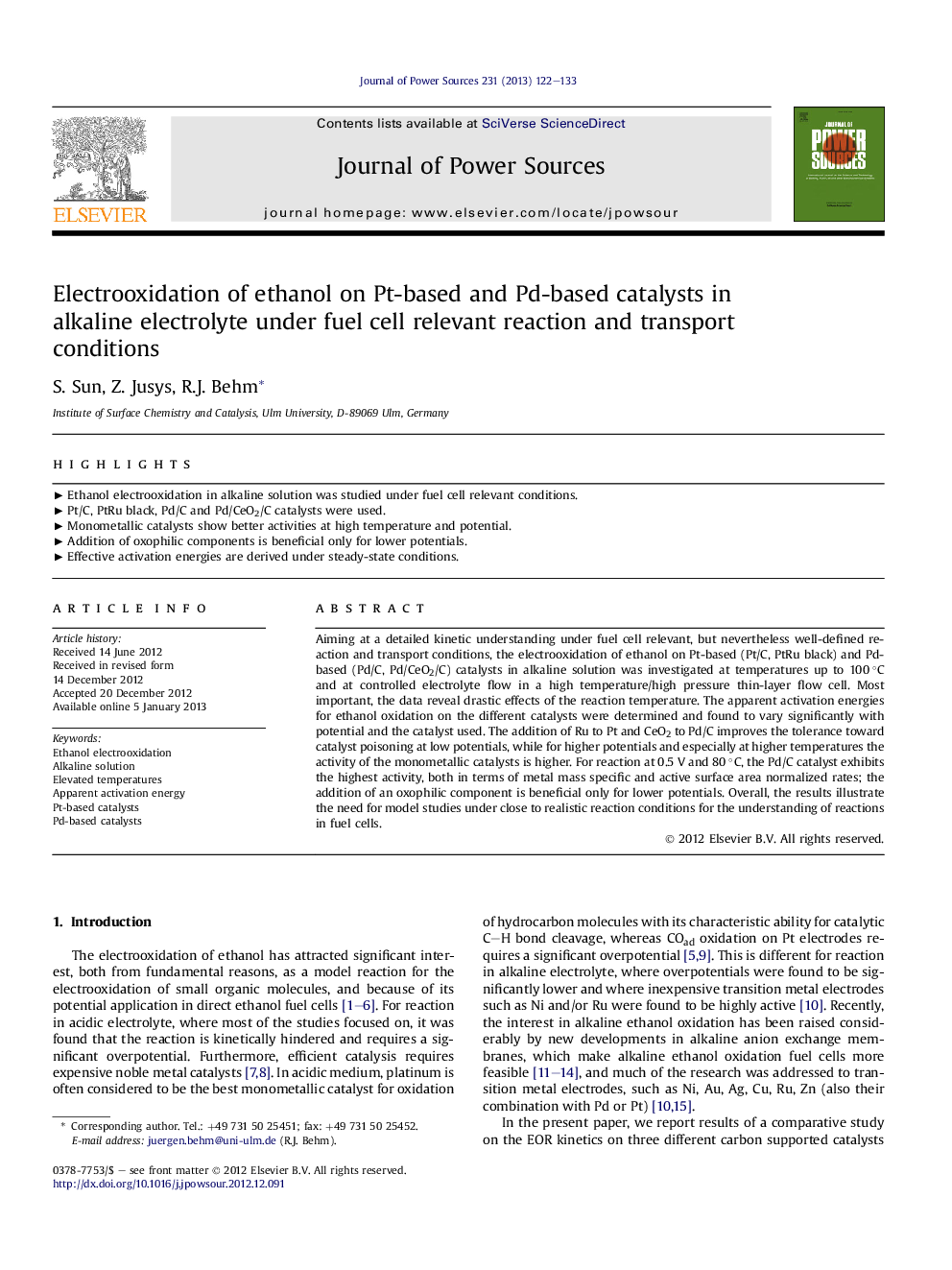| کد مقاله | کد نشریه | سال انتشار | مقاله انگلیسی | نسخه تمام متن |
|---|---|---|---|---|
| 1287989 | 1498001 | 2013 | 12 صفحه PDF | دانلود رایگان |

Aiming at a detailed kinetic understanding under fuel cell relevant, but nevertheless well-defined reaction and transport conditions, the electrooxidation of ethanol on Pt-based (Pt/C, PtRu black) and Pd-based (Pd/C, Pd/CeO2/C) catalysts in alkaline solution was investigated at temperatures up to 100 °C and at controlled electrolyte flow in a high temperature/high pressure thin-layer flow cell. Most important, the data reveal drastic effects of the reaction temperature. The apparent activation energies for ethanol oxidation on the different catalysts were determined and found to vary significantly with potential and the catalyst used. The addition of Ru to Pt and CeO2 to Pd/C improves the tolerance toward catalyst poisoning at low potentials, while for higher potentials and especially at higher temperatures the activity of the monometallic catalysts is higher. For reaction at 0.5 V and 80 °C, the Pd/C catalyst exhibits the highest activity, both in terms of metal mass specific and active surface area normalized rates; the addition of an oxophilic component is beneficial only for lower potentials. Overall, the results illustrate the need for model studies under close to realistic reaction conditions for the understanding of reactions in fuel cells.
► Ethanol electrooxidation in alkaline solution was studied under fuel cell relevant conditions.
► Pt/C, PtRu black, Pd/C and Pd/CeO2/C catalysts were used.
► Monometallic catalysts show better activities at high temperature and potential.
► Addition of oxophilic components is beneficial only for lower potentials.
► Effective activation energies are derived under steady-state conditions.
Journal: Journal of Power Sources - Volume 231, 1 June 2013, Pages 122–133